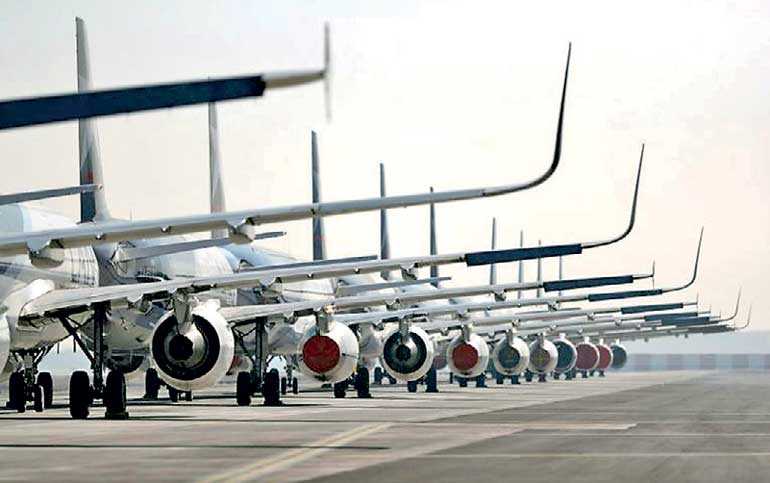Sunday Feb 22, 2026
Sunday Feb 22, 2026
Tuesday, 4 August 2020 00:40 - - {{hitsCtrl.values.hits}}

PARIS/SYDNEY (Reuters): Global airlines cut their coronavirus recovery forecast last week, saying it would take until 2024 – a year longer than previously expected – for passenger traffic to return to pre-crisis levels.
In an update on the pandemic’s crippling impact on air travel, the International Air Transport Association (IATA) cited slow virus containment in the United States and developing countries, and a weaker outlook for corporate travel. Lingering travel barriers and new restrictions in some markets are also weighing on nearer-term prospects, IATA said, cutting its 2020 passenger numbers forecast to a 55% decline – sharper than the 46% drop predicted in April. “The second half of this year will see a slower recovery than we’d hoped,” IATA Chief Economist Brian Pearce said.
June passenger numbers were down 86.5% year-on-year, the organisation said, after a 91% contraction in May. A surprise move by Britain to quarantine arrivals from Spain has created lot of uncertainty, Pearce said. “That is clearly going to be an issue with the recovery.” Recovery prospects are weakened by the spread of COVID-19 in the United States and developing countries together representing 40% of global air travel, IATA said. International travel is unlikely to rebound significantly without a reasonably priced testing regime that was deemed acceptable by governments, Association of Asia Pacific Airlines Director General Subhas Menon said. Depending on the country, tests can cost hundreds of dollars.
“We need advice from public health experts on how to go about that,” he told Reuters in an interview in Sydney on Wednesday. “If it is cheap enough then maybe you can expect travellers to pay for it. At the moment the cost is quite intimidating.” Business travel may also face a sustained slump, threatening the profitability of long-haul airlines and routes as corporate clients rein in spending and make greater use of video-conferences that have become the norm during lockdowns. “It will remain to be seen whether we see a recovery to pre-crisis business travel patterns,” Pearce said. “Our concern is that we won’t.”